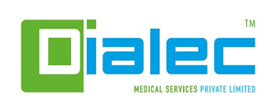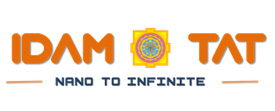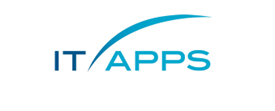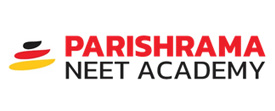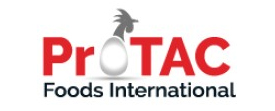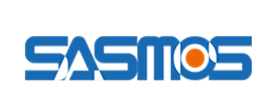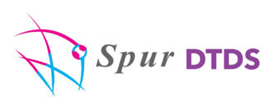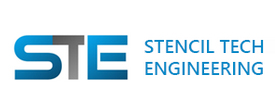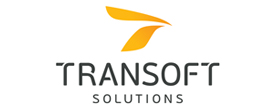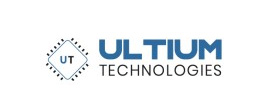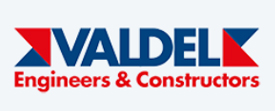Patent Registration Services
Protect your invention with a patent. We assist with filing applications, conducting prior art searches, and managing the approval process, ensuring your intellectual property is legally secured.

Patent registration is a legal aspect that grants you the inventor a unique and exclusive right to your inventions, preventing unauthorised use or replication of your products. In India, the patent registration process is controlled by the Indian Patent Act, 1970, and is administered by the Controller General of Patents, Designs & TradeMarks (CGPDTM).
As per some recent data, India saw over 58,500 patent applications filed in 2023, which shows a 15% year-on-year increase. And this upward trend highlights the growing awareness among businesses and also individuals about the need to secure your innovations. Even Though a lot of people submit applications for patent registration only a fraction of these applications are successfully granted due to procedural complexities and strict compliance requirements.
What is a Patent?
A patent is an exclusive right granted to an inventor or assignee by the country's government, giving you exclusive control over the use, manufacture, and commercialisation of an invention for a specific period, typically 20 years from the date of filing. The invention must meet three critical criteria:
- The invention should be entirely new.
- It should demonstrate a technical advancement not evident to someone skilled in the field.
- The invention must have utility in an industry.
Why is Patent Registration Essential?
Registering a patent ensures that:
- Your invention is protected from infringement.
- You have the right to monetize your invention through licensing or assignments.
- Legal recourse is available in case of disputes.
For instance, patented innovations have been shown to contribute significantly to business valuation. A study by the World Intellectual Property Organization (WIPO) indicates that IP assets, including patents, can account for up to 80% of a company's total value in knowledge-driven sectors like technology and pharmaceuticals.
By registering a patent, you are not only protecting your intellectual property but also strengthening your market position and attracting potential investors. Hence, failing to secure a patent can lead to unauthorised use, loss of competitive edge, and missed revenue opportunities.
Why Choose Benchmark
At Benchmark, we specialise in delivering smooth and reliable patent registration services made to meet your unique needs. With a commitment to excellence, we ensure that your intellectual property is protected with precision and professionalism.
Here's why Benchmark stands out as your trusted partner for patent registration:
- Detailed patent search and analysis to ensure novelty and avoid conflicts.
- Expert drafting of patent specifications and claims.
- Smooth filing of provisional and complete patent applications.
- Assistance with patent examinations and responses to office actions.
- End-to-end management of patent compliance and renewals.
- Transparent and cost-effective pricing models.
- Proven track record of securing patents across diverse industries.
Our Services
Benchmark offers a wide range of specialised services to guide you through every aspect of the patent registration process. Our expertise ensures careful handling of all technical and legal requirements, giving you a smooth and successful registration journey.
Our service offerings under Patent Registration include:
- Assistance with prior searches to evaluate patentability.
- Drafting of detailed patent specifications, including claims, abstract, and drawings.
- Filing of provisional and complete patent applications as per jurisdictional requirements.
- Representation during patent examination and hearings before the patent office.
- Management of opposition proceedings to safeguard your patent rights.
- Facilitating international patent applications under the Patent Cooperation Treaty (PCT) and other frameworks.
- Advisory on patent portfolio management and IP strategy.
- Conducting freedom-to-operate (FTO) analysis to assess potential infringement risks.
- Support for technology transfer agreements and patent licensing arrangements.
Documents Required for Patent Registration
Accurate and complete documentation is an important part of the patent registration process. Below is a list of essential documents required for patent registration:
- Form-1: Application for grant of a patent.
- Form-2: Provisional or complete specification of the invention.
- Abstract of the invention outlining its key features.
- Drawings and diagrams (if applicable) to support the patent specification.
- Form-3: Statement and undertaking regarding foreign filings (if applicable).
- Form-5: Declaration as to inventorship.
- Power of Attorney (if filed through a patent agent).
- Copy of the inventor's identity proof and address proof.
- Assignment deed or agreement (if the applicant is not the inventor).
- Proof of priority (in case of claiming priority from a previous application).
- Form-28: For startups or small entities claiming fee benefits.
Step-by-Step Process for Patent Registration
The patent registration process involves several stages to ensure that your invention receives complete legal protection. At Benchmark, we simplify this process while following all technical and legal standards. Below is a detailed breakdown of the patent registration process:
Step 1: Conducting a Patentability Search
A patentability search, also known as a prior art search, is conducted to assess whether your invention meets the key criteria of novelty, inventive step, and industrial applicability.
- Examination of existing patents, publications, and technical literature.
- Evaluation of prior art databases such as WIPO, EPO, and Indian Patent Office records.
- Ensures your invention is unique and does not infringe on existing patents.
Step 2: Drafting the Patent Specification
The patent specification is an important aspect of your application and it must be prepared with precision.
- Provisional Specification: Filed when the invention is in a developmental stage to secure an early filing date.
- Complete Specification: Includes detailed descriptions, claims, and technical drawings.
- Crafting claims to define the scope of protection sought under the patent.
- Incorporation of technical diagrams and an abstract summarizing the invention.
Step 3: Filing the Patent Application
The application is filed with the Indian Patent Office or the relevant authority for international filings.
- Filing options: Provisional Application, Complete Application, PCT Application, or Convention Application.
- Submission of necessary forms (e.g., Form-1, Form-2) along with supporting documents.
- Allocation of a Patent Application Number for tracking purposes.
Step 4: Publication of Patent Application
After filing, the application is published in the Patent Journal by the Indian Patent Office.
- Standard publication timeline: 18 months from the filing date.
- Early publication option (Form-9) to expedite visibility and potential opposition.
- Ensures public disclosure while retaining exclusive rights.
Step 5: Examination of the Patent Application
A formal request for examination (Form-18) must be filed to initiate this step.
- Detailed scrutiny by the Patent Examiner to ensure compliance with legal and technical standards.
- Review of claims, specifications, and prior art to determine patentability.
- Issuance of a First Examination Report (FER) outlining objections or required amendments.
Step 6: Responding to Examination Reports
The applicant or authorised agent must address the FER within the prescribed timeline.
- Amendment of claims or specifications to address objections.
- Submission of detailed responses with supporting documents or expert opinions.
- Representation during hearings, if required, to clarify patentability.
Step 7: Grant of Patent
Upon successful resolution of all objections, the patent is granted by the patent office.
- Issuance of the Certificate of Patent Grant to the applicant.
- Patent details are published in the Patent Journal for public record.
- Exclusive rights are granted for 20 years from the filing date.
Step 8: Post-Grant Compliance
After the grant, maintaining the patent's validity is crucial.
- Payment of annual renewal fees to ensure the patent remains active.
- Monitoring for potential infringement and initiating enforcement actions when necessary.
- Filing additional applications, such as patent of addition or divisional applications, as required.
Non-Compliance Issues to Avoid
Patent registration requires strict obedience to the legal and procedural standards. Failure to comply with these regulations can result in delays, rejections, or loss of rights.
Here are some common non-compliance issues to avoid:
- Filing incomplete or inaccurate patent specifications.
- Failure to conduct a thorough prior art search before filing.
- Missing deadlines for submitting examination requests or responses to the First Examination Report (FER).
- Incorrect or inadequate drafting of patent claims.
- Non-submission of essential forms, such as Form-3 (foreign filing declaration) or Form-28 (for startups/small entities).
- Neglecting to pay annual renewal fees for maintaining patent validity.
- Failure to address objections raised during patent examination.
- Discrepancies in the applicant's details or supporting documents.
- Not following the procedural requirements for patent opposition proceedings.
- Infringement of existing patents due to insufficient freedom-to-operate (FTO) analysis.
Conclusion
Even though getting a patent is not a legal obligation, it's a good move to safeguard your inventions and gain a competitive edge in the market. At Benchmark, we combine technical expertise with a deep understanding of intellectual property law to deliver reliable patent registration services. From conducting thorough prior art searches to post-grant compliance, our end-to-end support ensures your invention receives the protection it deserves.
With the complexities of patent law and the high stakes involved, having a trusted partner like Benchmark by your side makes all the difference. Let us help you understand the patent registration process with confidence and precision.
Get in Touch
Get Started Now with Benchmark and secure your intellectual property effortlessly.
FAQs
What is the validity of a patent in India?
A patent in India is valid for 20 years from the date of filing the application. To maintain its validity, the patent holder must pay annual renewal fees. Failing to pay these fees can result in the lapse of the patent, making the invention public domain.
What is the difference between a provisional and a complete patent application?
A provisional application is filed when the invention is in a developmental stage to secure an early filing date. A complete application, on the other hand, contains detailed specifications, claims, and other supporting documents. Filing a complete application within 12 months of the provisional is mandatory to proceed with the patent grant process.
What are patent claims, and why are they important?
Patent claims define the scope of legal protection granted by a patent. They specify what aspects of the invention are protected from unauthorized use or replication. Drafting precise and strong claims is crucial to safeguard your intellectual property rights effectively.
Can a startup or small entity benefit from reduced patent fees in India?
Yes, startups and small entities are eligible for reduced patent application and renewal fees in India. They must submit Form-28 along with the application to claim these benefits. This incentive encourages innovation by reducing the financial burden of obtaining patents.
What happens if my patent application is rejected?
If your patent application is rejected, you can file an appeal with the Intellectual Property Appellate Board (IPAB) or the respective authority. Addressing objections with revised claims or additional evidence can improve your chances of securing the patent. It is advisable to seek professional guidance during this stage.










